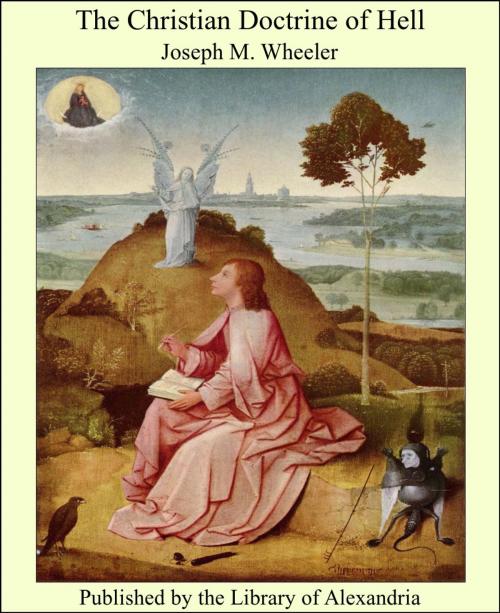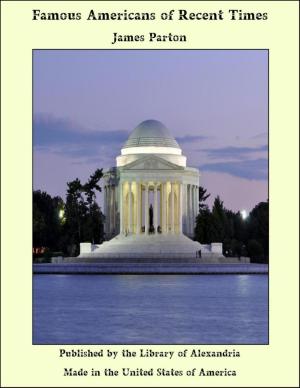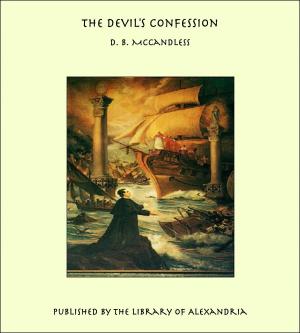The Christian Doctrine of Hell
Nonfiction, Religion & Spirituality, New Age, History, Fiction & Literature| Author: | Joseph M. Wheeler | ISBN: | 9781465536723 |
| Publisher: | Library of Alexandria | Publication: | March 8, 2015 |
| Imprint: | Language: | English |
| Author: | Joseph M. Wheeler |
| ISBN: | 9781465536723 |
| Publisher: | Library of Alexandria |
| Publication: | March 8, 2015 |
| Imprint: | |
| Language: | English |
I WOULD not willingly quit this world without having said my say upon the most terrible of all its superstitions, the doctrine of eternal torments—which Archdeacon Farrar describes as the "hideous incubus of atrocious conceptions"—and which, in my own experience, is the cause of appalling apprehensions and even insanity in the minds of the sensitive and weak-minded. If there is a hell, that is the most important fact in the universe. Compared with an eternity of torment, all that this little life has to offer is but as nothing. If there is no hell, then, it seems to me, the faith in Jesus is vain, for no such salvation as that offered by orthodox Christianity is necessary. Not only is the doctrine of eternal torments clearly taught in Scripture, but it is, as I shall show, historically bound up with the creed of Christendom. It may be said, why attack a superstition confessedly falling into decay? Satan, that once excellent scapegoat for all misdeeds, is superannuated. Hell is never mentioned to ears polite. Since Freethought came into the world its temperature has considerably decreased. The brimstone business threatens to become obsolete. It is none the less the corner-stone of the whole system, and when it finally collapses it will bring down Other doctrines with it. The Salvationist, no less than the Jesuit, knows its power. As the old beadle said, "A kirk without a hell is'na worth a damn." Upon the healthy-minded the doctrine of eternal torments will soon have no more effect than water upon a duck's back. But mental health and strength are not the inheritance of all. If the dogma was not taught until minds were mature enough to examine it, it might safely be left; but while it is continually taught to infancy, to seek to eradicate it is the duty of those who regard it as a pernicious error. To me it appears that the best way to do this is to show what the doctrine has actually been in the days when Christianity was unquestioned. Christians are becoming ashamed of their hell—which they rarely realise as possibly the fate of themselves or their friends; that way madness lies. They cannot get rid of the definite statements in the New Testament, but they avoid dwelling on them, or attempt to construe them figuratively. Hell was hot enough when religion was powerful. As it declines it is discovered that hell is not so terrible after all
I WOULD not willingly quit this world without having said my say upon the most terrible of all its superstitions, the doctrine of eternal torments—which Archdeacon Farrar describes as the "hideous incubus of atrocious conceptions"—and which, in my own experience, is the cause of appalling apprehensions and even insanity in the minds of the sensitive and weak-minded. If there is a hell, that is the most important fact in the universe. Compared with an eternity of torment, all that this little life has to offer is but as nothing. If there is no hell, then, it seems to me, the faith in Jesus is vain, for no such salvation as that offered by orthodox Christianity is necessary. Not only is the doctrine of eternal torments clearly taught in Scripture, but it is, as I shall show, historically bound up with the creed of Christendom. It may be said, why attack a superstition confessedly falling into decay? Satan, that once excellent scapegoat for all misdeeds, is superannuated. Hell is never mentioned to ears polite. Since Freethought came into the world its temperature has considerably decreased. The brimstone business threatens to become obsolete. It is none the less the corner-stone of the whole system, and when it finally collapses it will bring down Other doctrines with it. The Salvationist, no less than the Jesuit, knows its power. As the old beadle said, "A kirk without a hell is'na worth a damn." Upon the healthy-minded the doctrine of eternal torments will soon have no more effect than water upon a duck's back. But mental health and strength are not the inheritance of all. If the dogma was not taught until minds were mature enough to examine it, it might safely be left; but while it is continually taught to infancy, to seek to eradicate it is the duty of those who regard it as a pernicious error. To me it appears that the best way to do this is to show what the doctrine has actually been in the days when Christianity was unquestioned. Christians are becoming ashamed of their hell—which they rarely realise as possibly the fate of themselves or their friends; that way madness lies. They cannot get rid of the definite statements in the New Testament, but they avoid dwelling on them, or attempt to construe them figuratively. Hell was hot enough when religion was powerful. As it declines it is discovered that hell is not so terrible after all















